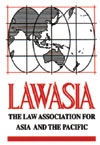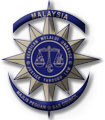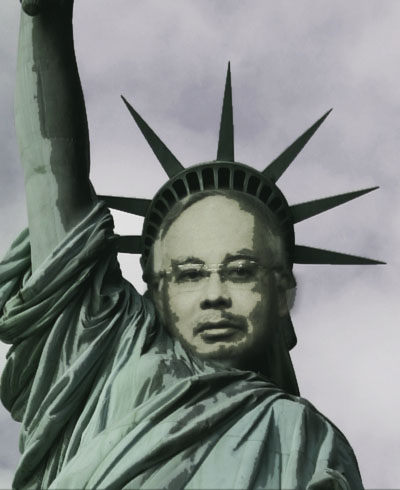The Prime Minister, Datuk Seri Najib Razak’s last-minute clarification today of the Peaceful Assembly Bill (PAB) is testimony that the PAB is the worst and most slipshod bill ever drafted in the 54-year history of Malaysian Parliament as well as raising questions about Najib’s bona fides in political reforms and transformation.
Najib blamed Pakatan Rakyat (PR) for “confusing” the public with regard to the 30-day notification requirement.
He said:
“Actually the wording is within 30 days, it can be within five or 10 days but that word led to so much confusion so we decided that 10 days to be specific, so that there will be no doubts.” (The Malaysian Insider)
Najib said the previous 30 days’ notification did not mean a month’s notice was needed.
Najib’s ”clarification” is utterly ridiculous. In fact, Najib is presenting a sorry public spectacle of a Prime Minister who does not know what he is talking about, and even worse does not understand the content of the Bill he introduced in Parliament on Thursday though he described it as “revolutionary”.
It is a terrible reflection of the quality of leadership and governance in Malaysia that the Prime Minister can be so badly advised as to the Bill he presented in Parliament as to cause the Prime Minister to totally mislead Parliament and the country about its import and implications.
I do not believe that Najib has deliberately told a lie about the PAB, but clearly he had been told a lie by his advisers causing him to spread a lie!
I challenge Najib to explain how he could claim that under the PAB, before the proposed amendment tomorrow to reduce the 30-day notice requirement to 10 days, it would be possible to organise an assembly “within five or 10 days”?
Let us take a hypothetical case. Say an organiser wants to hold an assembly on 30th December 2011.
Clause 9 (1) of the PAB on “Notification of assembly” provides:
“An organizer shall, within thirty days before the date of an assembly, notify the Officer in Charge of the Police District (OCPD) in which the assembly is to be held”.
Can Najib explain how the organiser could comply with the PAB if he gives notice to the police “within five or 10 days”, i.e. from 20th December or 25th December?
This is clearly impossible because Clause 12 requires the OCPD concerned to inform “persons who have interests” within 48 hours of the assembly notification and who have five days to communicate to the Police their “concerns or objections to the assembly”. This would have taken up seven days – exceeding the five-day claim by Najib that a proposed assembly could be held.
Under Clause 14, the OCPD has to respond to the notification of assembly within 12 days. Clause 16 provides four days for the right of appeal of the organiser to restrictions and conditions imposed by the police to the Home Minister, who has six days to give his decision.
This means that the quickest an organiser will know about the outcome of his notification of an assembly on Dec. 30 is 12 days after submission of notification, provided the police does not impose restrictions and conditions.
If there are police restrictions and conditions followed by appeal to the Home Minister, the quickest an organiser can clear the bureaucratic notification process is 22 days.
This means that an organiser must give notification at least 22 days before the proposed assembly date or he may not be able to complete the maximum of 22-day bureaucratic notification process.
The words “within thirty days before the date of an assembly” in Clause 9(1) is utterly misleading and meaningless and is no help to Najib to explain how an assembly under the PAB could be held “within five to 10 days”.
Najib should not blame the Pakatan Rakyat for the atrocious PAB drafting but the parliamentary draftsmen, the Attorney-General and his legal officers, as well as the entire Cabinet who have proven to be sleeping on their jobs.
Najib said that under the PAB: “The Peaceful Assembly Act is divided into two categories, for designated areas, they only need to inform the police and there will be people to supervise even if it’s on a short notice.
“For non-designated areas, then it will require a 10-day period so the police can negotiate with the local community to get their views.” (Malaysiakini)
Here is further testimony of the atrocious drafting of the PAB. Where does the PAB say that the police must be informed for assemblies to be held in designated areas? The PAB is silent on the matter.
Najib is offended at the comparison with Myanmar but can he explain why Myanmar can pass a law on freedom of assembly requiring only five days’ notice but Malaysia needs 10 days’ notice?
In actual fact, if Article 10 of the Constitution guaranteeing freedom of assembly as one of the fundamental rights of Malaysians is to have real meaning, the government should not be designating permissible places of assembly, as all areas should be open to Malaysians to exercise their right to freedom of assembly – except for certain designated areas declared/gazetted “out of bounds” for security and other considerations.
The “designated areas” should be places where freedom of assembly is not allowed rather than where freedom of assembly is permitted.
Najib has only provided more grounds why there should be no indecent haste to force through the passage of PAB in Dewan Rakyat tomorrow and that it should be referred to a Parliamentary Select Committee for full, meaningful and mature consultation, consideration and consensus.



 GENEVA
(7 December 2011) – A group of United Nations independent experts
warned that a new Peaceful Assembly Bill in Malaysia may “arbitrarily
and disproportionately restrict the right to assemble peacefully.” The
restrictions range from a ban on street protests and a prohibition on
non-citizens and citizens under 21 years of age to assemble peacefully,
to conditional access for media to public gatherings.
GENEVA
(7 December 2011) – A group of United Nations independent experts
warned that a new Peaceful Assembly Bill in Malaysia may “arbitrarily
and disproportionately restrict the right to assemble peacefully.” The
restrictions range from a ban on street protests and a prohibition on
non-citizens and citizens under 21 years of age to assemble peacefully,
to conditional access for media to public gatherings. LAWASIA, the Law Association for Asia and the Pacific, joins its voice with that of its member organisation, the Malaysian Bar, and other members of Malaysian civil society in recording its objection to and alarm at the content of the Peaceful Assembly Bill (the Bill) tabled in the Malaysian Parliament on 22 November 2011 for first reading.
LAWASIA, the Law Association for Asia and the Pacific, joins its voice with that of its member organisation, the Malaysian Bar, and other members of Malaysian civil society in recording its objection to and alarm at the content of the Peaceful Assembly Bill (the Bill) tabled in the Malaysian Parliament on 22 November 2011 for first reading.



 Please click
Please click 


 Please click
Please click 